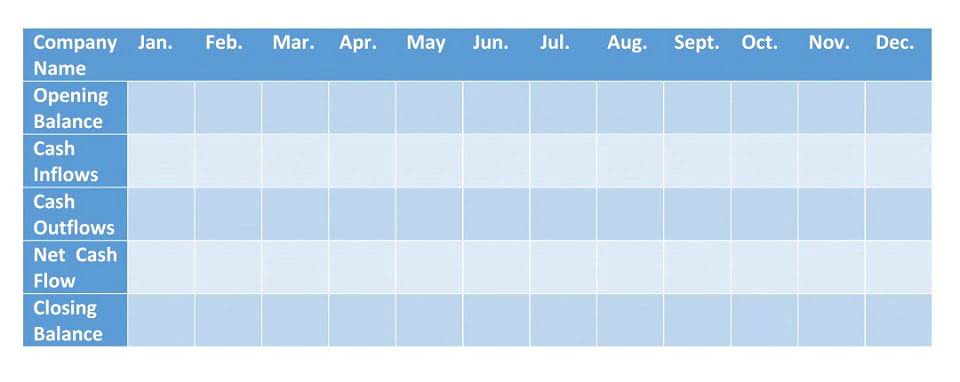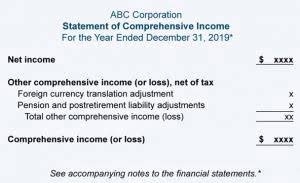What Is Full-Charge Bookkeeping? Everything You Need to Know Bookkeeping Services Made For Entrepreneurs

This typically occurs during busy financial periods, such as month-end or year-end closings, when there is a higher volume of financial transactions to process and analyze. Another essential qualification for a full charge bookkeeper is familiarity with tax laws and regulations. Bookkeepers need to understand the tax implications of various financial transactions and ensure compliance with applicable tax laws. One of the key qualifications for a full charge bookkeeper is a deep understanding of Generally Accepted Accounting Principles (GAAP). GAAP serves as the standard framework for financial accounting and reporting in the United States. In a Bachelor’s Degree program, students will delve deeper into topics such as financial analysis, cost accounting, auditing, and advanced financial reporting.

Self-Education Tools That Every Ecommerce Professional Should Know
Also, there are no official requirements, whether educational or professional, for this occupation. Most of the full-charge bookkeepers started as regular bookkeepers, gained experience, went through advanced accounting software training, and worked their way up the ladder. Since this role comes with higher responsibilities, it requires more experience in the field. The path to becoming a full charge bookkeeper requires dedication, continuous learning, and a commitment to excellence in financial management. With the right combination of education, experience, and skills, individuals can position themselves as valuable assets to businesses seeking comprehensive accounting support.
Managing Accounts Receivable
They are in charge of ensuring accuracy in data entry, reporting and financial record keeping. Vyde is a licensed accounting firm (CPA) based in Provo, Utah, and members of the AICPA. We provide professional accounting services to businesses and individuals, with a focus on small business bookkeeping and taxes. At Let’s Ledger, we know that small businesses need to preserve funds anywhere they can. The best financial decision you can make for your company when starting out is to hire a full charge bookkeeper. They will wear multiple hats, especially if your business doesn’t have a demanding accounting department.

Professional Requirements for Full Charge Bookkeepers
Effective time management allows bookkeepers to prioritize tasks, allocate time appropriately, and ensure that all financial obligations are met within the given deadlines. By managing their time effectively, bookkeepers can maintain productivity and ensure the smooth operation of the company’s financial processes. As the CPA captains rely on accurate maps for a safe return, so do they depend on the full-charge bookkeeper to prepare tax returns and keep the accounting department on course through quarterly storms. The full-charge bookkeeper’s steady hand ensures the business voyage remains prosperous and true.
This means they have the capability to provide tax advice that helps you save money, and avoid penalties and IRS audits. Speaking of skills, software expertise and the ability to handle complex accounting systems is a must. Institutions also typically train people in the essential skills they need to be effective bookkeepers.

They also look more closely at years of experience and how well-versed they are in accounting and finance. A full charge bookkeeper is someone who will manage all the financial accounts of a business. They are usually accountable for more than a full charge bookkeeper definition regular or part-time bookkeeper, and report not to an accountant but directly to the CEO, CFO, or financial manager. No matter how much bookkeeping and accounting duties might differ, a full service bookkeeping job combines some features of both.
A Full Charge Bookkeeper is responsible for managing all the financial data for a company. Full Charge Bookkeepers are well-versed in accounts payable and receivable, payroll, and bank reconciliations. For small businesses and startups, navigating the intricate world of finance can feel daunting. With limited resources, they often need help handling accounting in-house or seeking external support. This is where the full-charge bookkeeper emerges as a vital financial guardian, wielding a multifaceted skillset to keep the financial gears turning smoothly. Becoming a full charge bookkeeper requires a combination of education, practical experience, and professional certifications.
Other valuable skills to look for include problem-solving abilities, excellent communication skills, and a proven ability to maintain confidentiality. Proficiency in accounting software, such as QuickBooks, and Microsoft Office applications is also necessary. They should also be proficient in computer accounting software and spreadsheet programs. Full Charge Bookkeepers manage and oversee the entire financial health of a company. Today, we present a customizable full charge bookkeeper job description template, designed for effortless posting on job boards or career sites.
- We take pride in its high-quality service, ensuring clients can focus on other important aspects of business.
- Full charge bookkeepers are often employed by small to medium-sized businesses or may work as independent contractors.
- An in-house bookkeeper typically focuses on a narrower range of duties, often reporting to a controller or accountant.
- So let’s see what the basic duties of a full charge bookkeeper are, so you can have a better idea if that is what your business needs are.
- They handle the daily financial activities, ensuring all transactions are accurately recorded on time.
- In-depth knowledge of accounting principles, financial reporting, and general ledger structure is crucial in this role.
- Proper time management allows you to allocate the right amount of time to each task, ensuring that you can deliver accurate and timely financial information to the business.
Required Skills for a Full Charge Bookkeeper

They don’t just crunch numbers; they make those numbers understandable and usable for the business owner. On top of that, they have the knowledge to make sure your financials are tax ready and compliant. Full charge bookkeepers are responsible for handling all the accounts of a small to medium-sized business.
